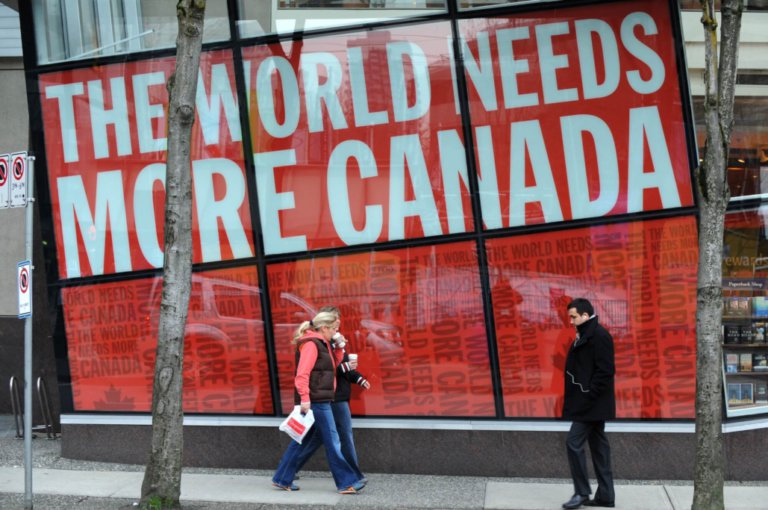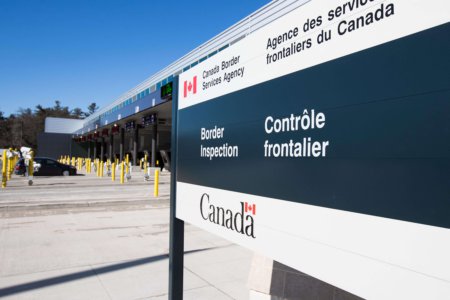
Are you an international student who is looking to extend your residence in Canada? Here’s some good news: Immigration, Refugees and Citizenship Canada (IRCC) offers temporary visa holders several options for staying in the country, even if you’re waiting on a decision for permanent residence or temporary residence.
Residence in Canada explained

These five options to extend your temporary residence in Canada are especially useful. Source: Dave Chan/AFP
There are five options that you can consider to extend your residency in Canada, depending on your current situation:
Maintained status
With the Maintained Status, you can extend your status before that status expires, and legally remain in Canada until a decision is made on your application. This means you can stay in Canada with the same conditions as your previous permit until IRCC makes a decision about your application.
Work Permit
Canada has two work permit programmes: those requiring a positive or neutral Labour Market Impact Assessment (LMIA), and those that are LMIA exempt.
The LMIA – which the employer applies for to Employment and Development Services Canada – shows the Canadian government the actual need for foreign workers to fill in the vacancies. Once approved, the worker can use the confirmation letter copy to apply for a work permit to IRCC.
Certain work permit programmes facilitate LMIA procedures – examples include the Global Talent Stream (tech industry with faster processing times) and the Quebec province’s list of occupations.
On the other hand, the majority of temporary foreign workers fall under the second group with LMIA-exempt permits, usually under these significant benefit and reciprocal employment groups.
These include open work permits, work permits under CUSMA, CETA, or other free trade agreements with Canada, and work permits under the International Experience Canada programme (a pathway for international youth wanting a Canadian experience).
Study Permit
Once accepted to a Designated Learning Institution (DLI), you can apply for a study permit that allows you to stay, work part-time during the school year, and full-time during breaks in Canada.
Upon graduating, you can consider applying for the Post-Graduation Work Permit (PGWP – more on it below), and be eligible for other pathways to achieve permanent residence in Canada which specifically cater to international student graduates.
Bridging Open Work Permit (BOWP)
If you’re planning on settling in Canada, this can be a good option for you. The BOWP allows certain permanent residency applicants to stay in Canada beyond the expiry date of their temporary status, notes Canada Visa.
These immigration programmes are eligible for BOWP:
-
-
- Federal Skilled Worker Program
- Canadian Experience Class (Since September 2021, foreign workers on this generally did not have opportunities to apply for permanent residence in Canada – without an Acknowledgement of Receipt (AOR) from IRCC, they cannot get a BOWP, but they may be able to apply for other work permits.)
- Federal Skilled Trades Program
- Provincial Nominee Program
- Quebec Skilled Workers
- Agri-Food Pilot Program
-
Find out more about your eligibility for BOWP here.
Spousal Open Work Permit (SOWP)
This may be an option if your spouse or common-law partner happens to be a Canadian citizen or permanent resident. Spouses of temporary residents may apply for this permit too.
Spouses of international students enrolled in eligible programmes may apply for the SOWP if they can prove their relationship is bona fide.
If you’re a temporary foreign worker, you need to meet eligibility specifications like having a work permit valid for six months after receiving the SOWP. You have to meet one of these four conditions as well:
-
- working in a National Occupational Classification (NOC) skill level of 0, A, or B;
- working in any occupation when accepted to an Atlantic Immigration Program (AIP) stream;
- working in any occupation holding a provincial or territorial nomination from the Provincial Nominee Program (PNP); or
- working in any occupation and holding a Quebec Selection Certificate (CSQ).
However, you should note the following:
- Some programmes like the Post-Graduation Work Permit (PGWP) are not renewable nor extendable, but that does not necessarily mean you cannot apply for a different work permit. Meant for international students who have already completed an eligible Canadian post-secondary programme (longer than eight months but shorter than two years; if two years or more, the PGWP is eligible for three years), you can use this to gain relevant and professional work experience that will come in handy for your future permanent residence application. One of the best aspects of this permit is that it is open – you are not tied down to a single employer or occupation.
- If you’re working or studying and want to apply for the Temporary Resident Visa (TRV), this is generally not encouraged as it does not allow you to work or study in Canada. If you’re on a TRV, you may apply for a Visitor Record to stay longer than six months – but bear in mind that this means you cannot work or study either.
The 2020 Annual Report to Parliament on Immigration found that around 74,586 people became permanent residents (Immigration, Refugees and Citizenship Canada). A total of 341,180 Canadian permanent residents were approved to live there.










